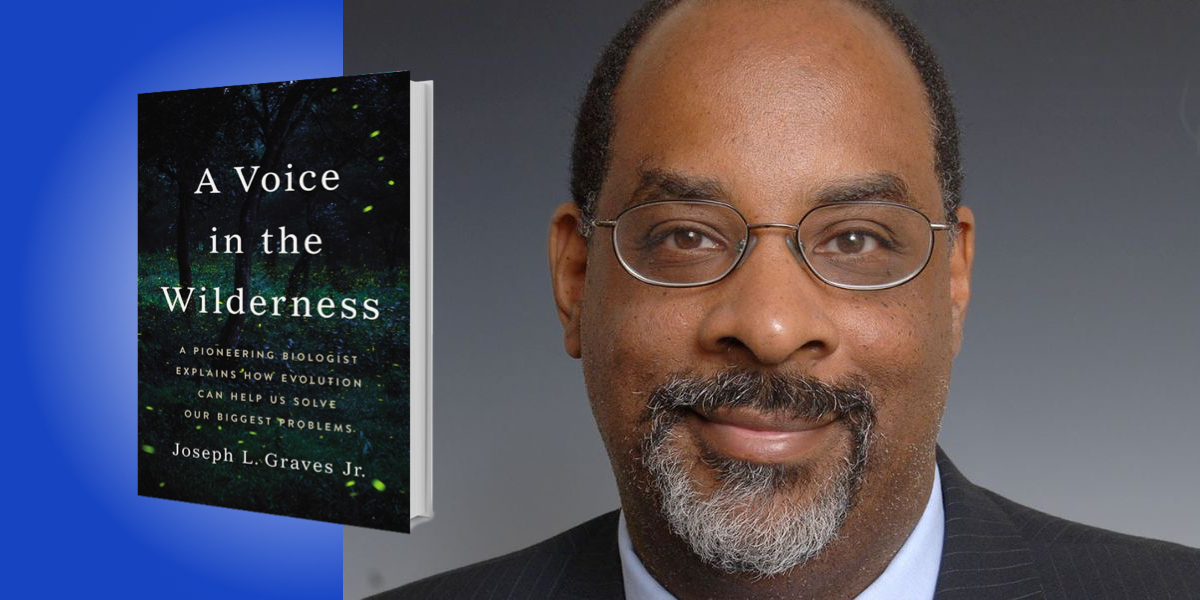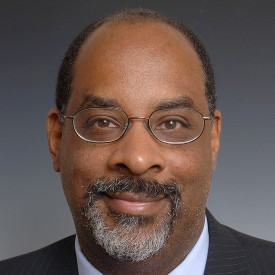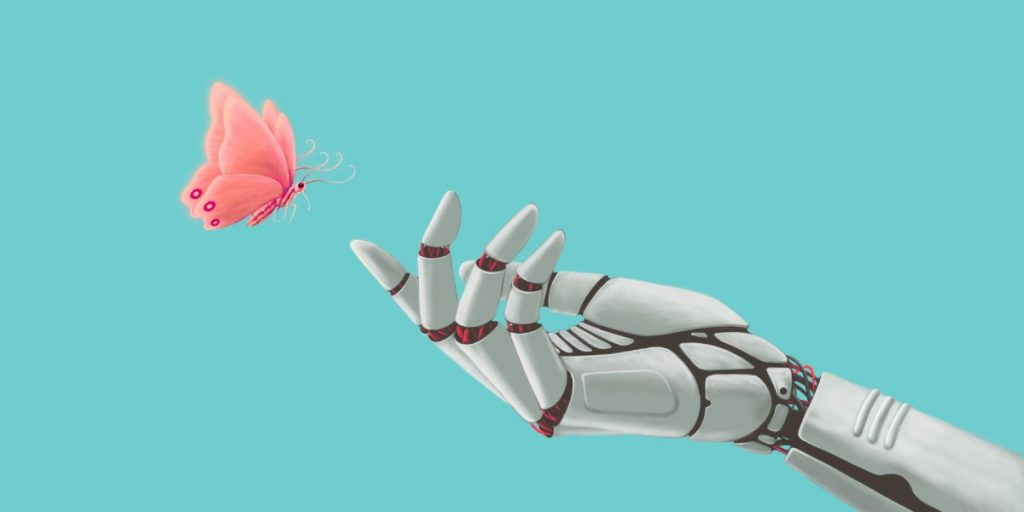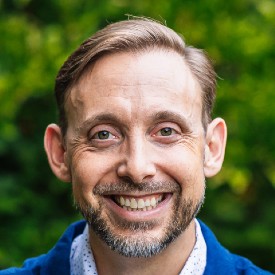Joseph L. Graves Jr. is an evolutionary biologist and geneticist. He is the first African American to earn a PhD in evolutionary biology, and is best known for his groundbreaking book about biological thought regarding human genetic diversity, The Emperor’s New Clothes, in which he attacks false links between race and social hierarchy, intelligence, and health.
Below, Joseph shares 5 key insights from his new book, A Voice in the Wilderness: A Pioneering Biologist Explains How Evolution Can Help Us Solve Our Biggest Problems. Listen to the audio version—read by Joseph himself—in the Next Big Idea App.
1. Black Darwin.
This is the story of how I overcame the disadvantages (racial subordination, poverty, imposter syndrome) in my way to becoming a scientist. There was nothing in the situation of my birth that predicted that I would become the first African American to earn a PhD in evolutionary biology. My parents grew up under violent Jim Crow with little access to education. They moved to New Jersey after World War II. My mother worked as a domestic during the day and as a factory worker at night. My father worked in the local lumber yard. In 1960, I entered a school system whose goals did not include my ever becoming a scientist. Yet, my intellectual abilities during elementary school surprised my teachers.
Things changed when I took up playing chess. By junior high, I was school champion. My first year of high school, I quit the football team to play on our competitive chess team instead. This also precipitated a change between my hanging out with the Black kids of my neighborhood and spending more time with the wealthy college-bound white kids from the north side of town. My strength in mathematics and science gained me a scholarship to attend Oberlin College.
My time at Oberlin was double edged-sword. Its liberal arts environment provided me with the critical thinking tools that served as the foundation for my eventual success as a scientist. However, it is also where I began doubting my ability to become a scientist. This occurred mainly due to my alienation as one of the few Black and working-class science students. I was becoming lost in the wilderness. There was no trail for me to follow. No Black scientist role models on campus. I internalized all of my failures, and deep down I just didn’t feel like I belonged. I was suffering from imposter syndrome. Eventually, I faced down imposter syndrome and became Black Darwin.
2. Nothing in biology makes sense without evolution.
Evolution is the core unifying principle of modern biology. Obviously, this wasn’t always so. Biology in the Western world began as an adjunct to Christian ideas of special creation. In this worldview, the omnipotence and beneficence of God could be directly observed in the works of creation. The idea was called natural theology. However, as natural theologians studied nature more closely, phenomena were uncovered that didn’t fit with the narrative of creation in Genesis. Chief amongst these were fossils of living things that could no longer be found on this planet.
“By the mid-19th century, the question of how species formed was the most significant scientific issue of the time.”
The first evolutionary scientists were Christians. The 18th century Catholic Jean Baptiste Lamarck recognized that animals had changed their form over the course of the fossil record. By the mid-19th century, the question of how species formed was the most significant scientific issue of the time. Charles Darwin began making sense of this question with the publication of On the Origin of Species in 1859. A few years later, the Austrian monk, Gregor Mendel, established the basic rules of heredity. In the early 20th century, Darwin’s natural selection and Mendel’s mechanisms of heredity were unified in The Neo-Darwinian synthesis.
The synthesis allowed biologists to solve some of the greatest problems in biology—and beyond. For instance, why and how we age, human biological variation (and how it isn’t racial), parasitism, sex and gender, epidemics and pandemics, race and intelligence, computational methods for engineering problems, and even approaches to social justice.
3. Accepting evolution does not mean discrediting the divine.
Evolution is the unifying idea of modern biological science. Yet, the majority of Americans do not accept it as a fact of nature. This is related to the particular religious history of the United States, not to religion itself. For example, predominantly Christian nations (such as Denmark, Sweden, and the UK) accept evolution at rates greater than 65% of all adults. The United States has the second lowest acceptance rate for evolution in the industrialized world (only Turkey is lower). This is because in the latter portion of the 19th century, American protestants were deeply influenced by Biblical literalism. This is the idea that everything in the Bible was literally true, including not just spiritual issues but also scientific, historical, and geographical facts.
“The false debate between religion and science has been harmful to both.”
As a practicing Christian, I hold to the higher criticism view of scripture. Thus, I do not think that the Bible is infallible in its scientific, historical, and geographical claims. The Bible can be read as literature, and our understanding of it has evolved over time. Seeing the Bible in this way, there is no reason to reject science methods as the most reliable way to understand natural systems. The Bible was never meant to be a science textbook.
The false debate between religion and science has been harmful to both. Throughout my career, I have been called upon to defuse the contention between bad religion and bad science. The former relies on the special creation of living things, and the latter claims that to accept science is to deny the existence of God. This false divide has been particularly harmful to teaching science effectively to Black and brown students who often come from deeply religious and spiritual communities. I have been effective in teaching evolution to these students because I do not ask them sacrifice their bond with their communities as payment for a career in science.
4. Rejecting America’s biggest lie.
James Baldwin said, “Not everything that is faced can be changed, but nothing can be changed until it is faced.” One of America’s greatest lies is that there’s a link between race and intelligence. There is no connection between biological variation and social conceptions of race, nor between intelligence and social structure.
My crusade to dismantle these falsehoods began when I was an assistant professor. A colleague implored me to address the exaggerated claims made by Richard Herrnstein and Charles R. Murray in The Bell Curve, published in 1994. I was one of the first scholars to publish a paper demonstrating the fundamental fallacies within this book, including its reliance on social definitions of race, as opposed to human biological variation, its use of discredited sources to support its claims, and its incorrect statistical methods. Little did I know that once I ventured down that road, the battle against scientific racism would dominate the rest of my career.
“One of America’s greatest lies is that there’s a link between race and intelligence.”
I wrote many books addressing the issue, but then despite my naïve and best hopes, in 2016 I found myself back at work against scientific racism. This was prompted by a direct discussion with Charles R. Murray about the genetics of intelligence at a program held at Williams College. With the nation’s racial climate shifting dramatically to the right, I collaborated to write Racism, Not Race, with my colleague Alan Goodman in 2021.
5. The evolutionary science of social justice.
We were all born into various systems of social injustice. Some simply refuse to see this fact, others resign themselves to accepting this and surviving the best they can, and then still fewer try changing this. I chose to devote my life to fighting for justice.
If one asks the average person on the street about evolution and social justice, they are likely to recall ideas such as eugenics or social Darwinism. These were movements that falsely utilized principles of genetics and evolution to justify social hierarchy. Sociologist Herbert Spencer (father of social Darwinism) coined the term survival of the fittest—not Charles Darwin.
The evolutionary principles that shape human societies do not necessarily result in rigid hierarchies. Furthermore, such hierarchies in the modern world are an evolutionary mismatch. A mismatch occurs when a trait that was formerly adaptive in an ancestral environment is now harmful in the present environment. There is a great danger to the future of our species if we allow systems of social injustice to govern the world. It is in the best interest of our species to envision and enact systems that benefit us all, instead of benefiting just a few.
To listen to the audio version read by author Joseph L. Graves Jr., download the Next Big Idea App today:
































